2013 INTERNATIONAL PERCUSSION FESTIVAL
Report
filed by Robert J. Lewis
Photos by Hanna Donato
The
much celebrated, 95% free Longueuil
International Percussion Festival (LIPF), now
in its 12th year, has always been much more than keeping the
beat, or an exposition of the variety of materials and instruments
that produces percussion and its effects.
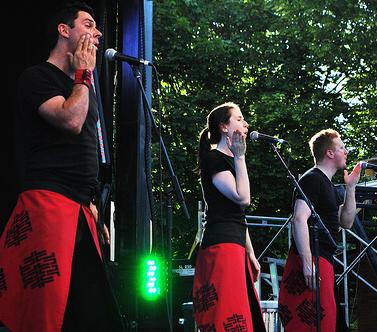
If
there’s one word that defines the LIPF it’s “inclusivity.”
In
recent years, the province's most complete festival
has hosted the music and culture of Brazil, Martinique,
Cuba, Guadalupe, Spain, Mexico, and this year, from half way
around the world, Australia -- with a special emphasis on its
aboriginal music and dance.
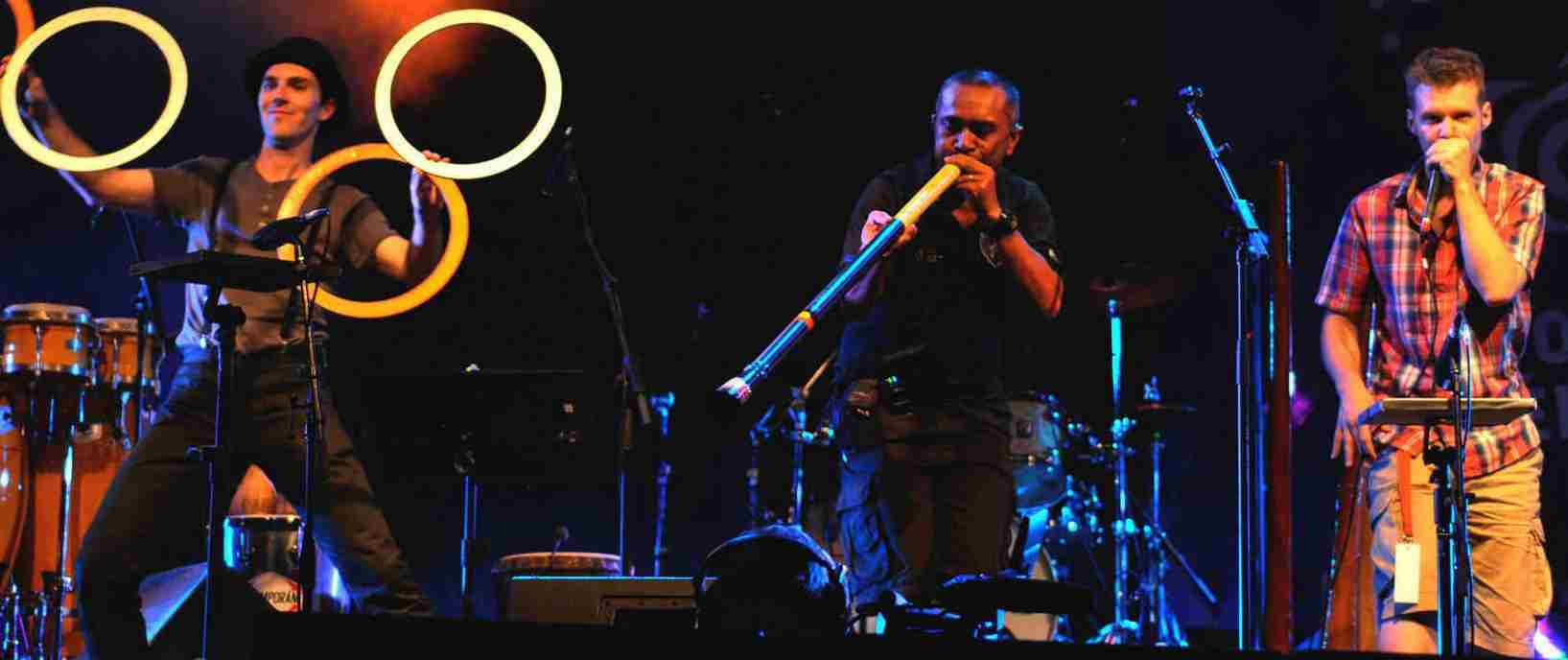 Among
the many positive cumulative effects -- especially on the impressionable
young – of getting acquainted with the above mentioned
countries is that the exposure not only instills the idea of
tolerance, but it encourages the festival goer to cozy up to
values and aesthetic preferences that fall outside his/her cultural,
ethnic and geographical purview.
Among
the many positive cumulative effects -- especially on the impressionable
young – of getting acquainted with the above mentioned
countries is that the exposure not only instills the idea of
tolerance, but it encourages the festival goer to cozy up to
values and aesthetic preferences that fall outside his/her cultural,
ethnic and geographical purview.
It
comes as no surprise that in poll after poll and year after
year, the numbers reveal that Quebec is Canada’s most
tolerant province. And if you’re looking for a template
on how to get it done, there is no better place to begin than
the LIPF.
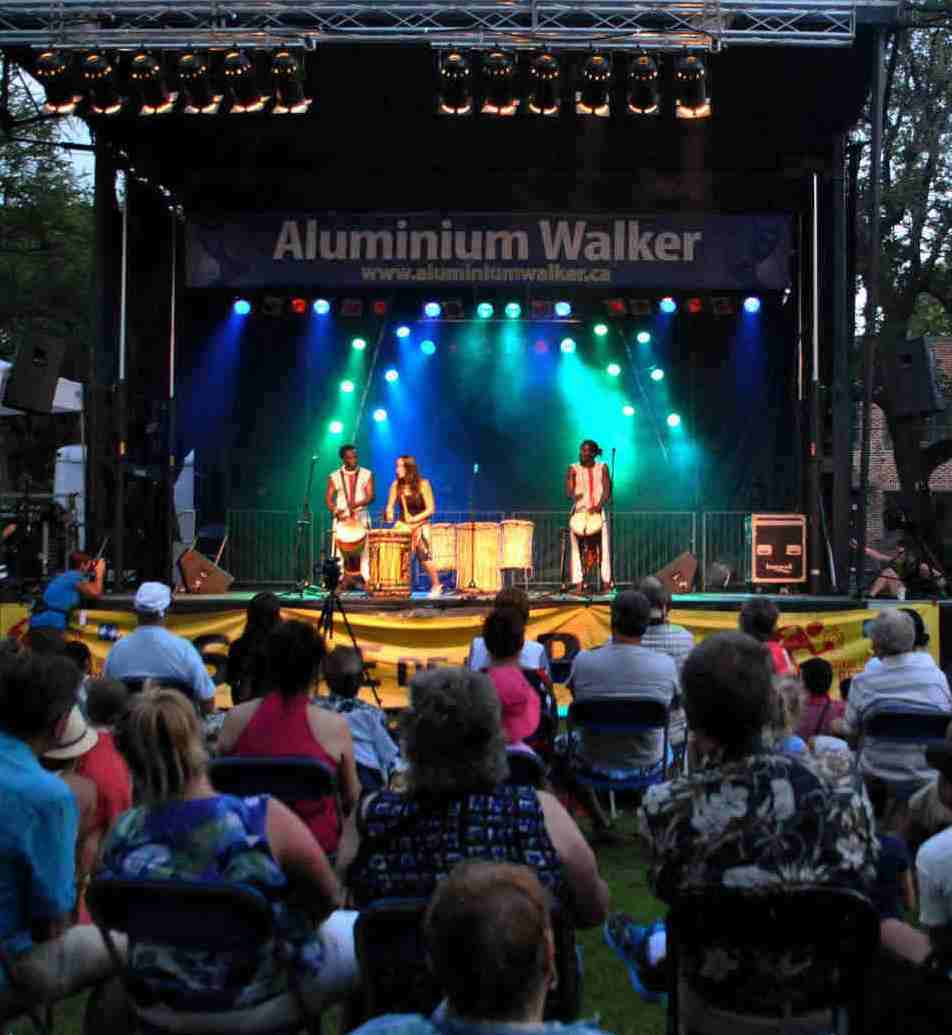
Rejecting
the notion that having fun and learning are mutually incompatible,
every year Longueuil invites a different country to its home
and provides it with a magnificent platform to display its history,
artifacts and culture. Since young minds are so impressionable
– they 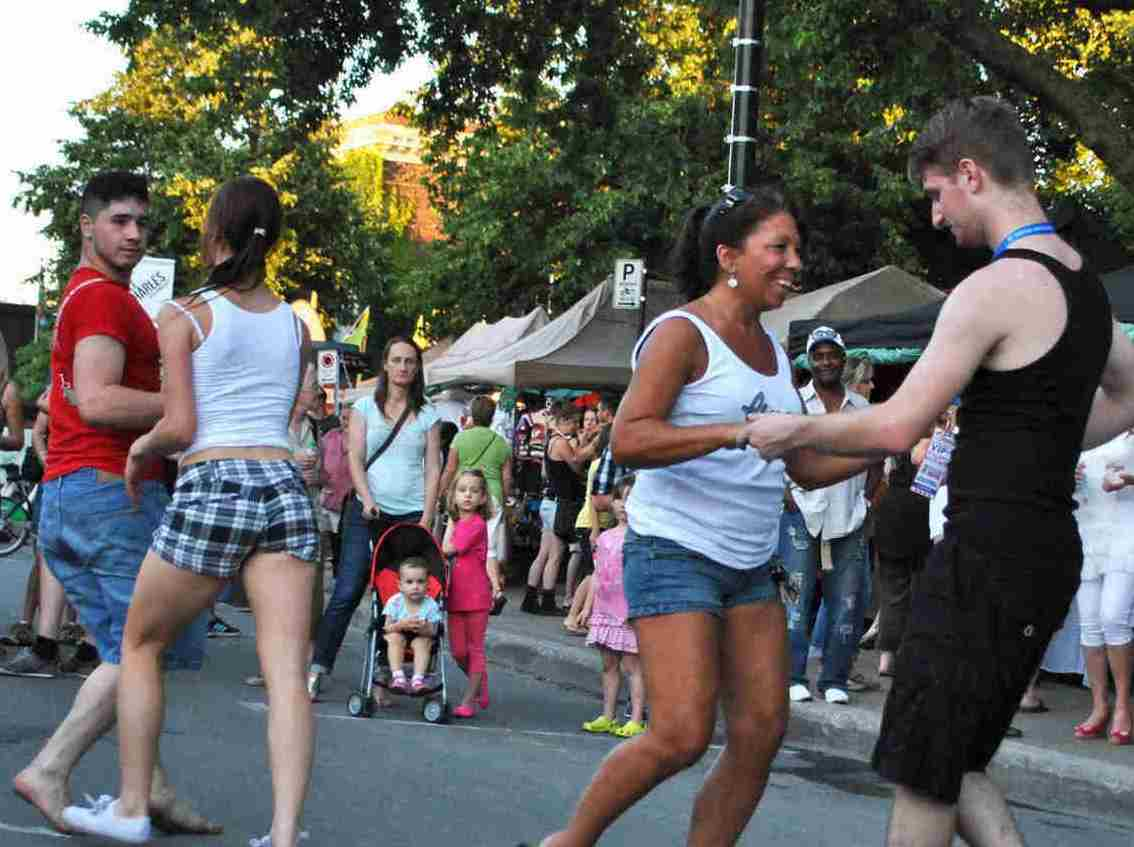 quickly
(magically) adapt to almost every imaginable environment, they
absorb music and languages like sponges, and they unconsciously
mimic the healthy attitudes of their curious parents –
the festival programmers’ (the indomitable team of Cadieux
& Lucu) make sure that the LIPF is first and foremost a
family affair.
quickly
(magically) adapt to almost every imaginable environment, they
absorb music and languages like sponges, and they unconsciously
mimic the healthy attitudes of their curious parents –
the festival programmers’ (the indomitable team of Cadieux
& Lucu) make sure that the LIPF is first and foremost a
family affair.
From
noon until well into the evening, there is an array of family
events for the young and not so young, including mini workshops
and ateliers where children can learn to draw and paint. Under
another big tent, there is instruction on how easy it is to
make instruments from recyclable material. There are also dance
classes in traditional and Latin dance with the pros showing
how it’s done ‘live,’ right on the streets
that are shut down to traffic for the entire festival. There’s
also a picnic giveaway with an emphasis on eating healthy (adults
not excluded); and finally a music contest for up and coming
young musicians. This year, more than 15 groups took to the
stage and gave it their all and left no doubt that the future
of music is in very capable hands. I’m not one to make
predictions but keep an ear on singer/vibraphonist Joëlle
Saint-Pierre who just might be Quebec’s next star-in-waiting.
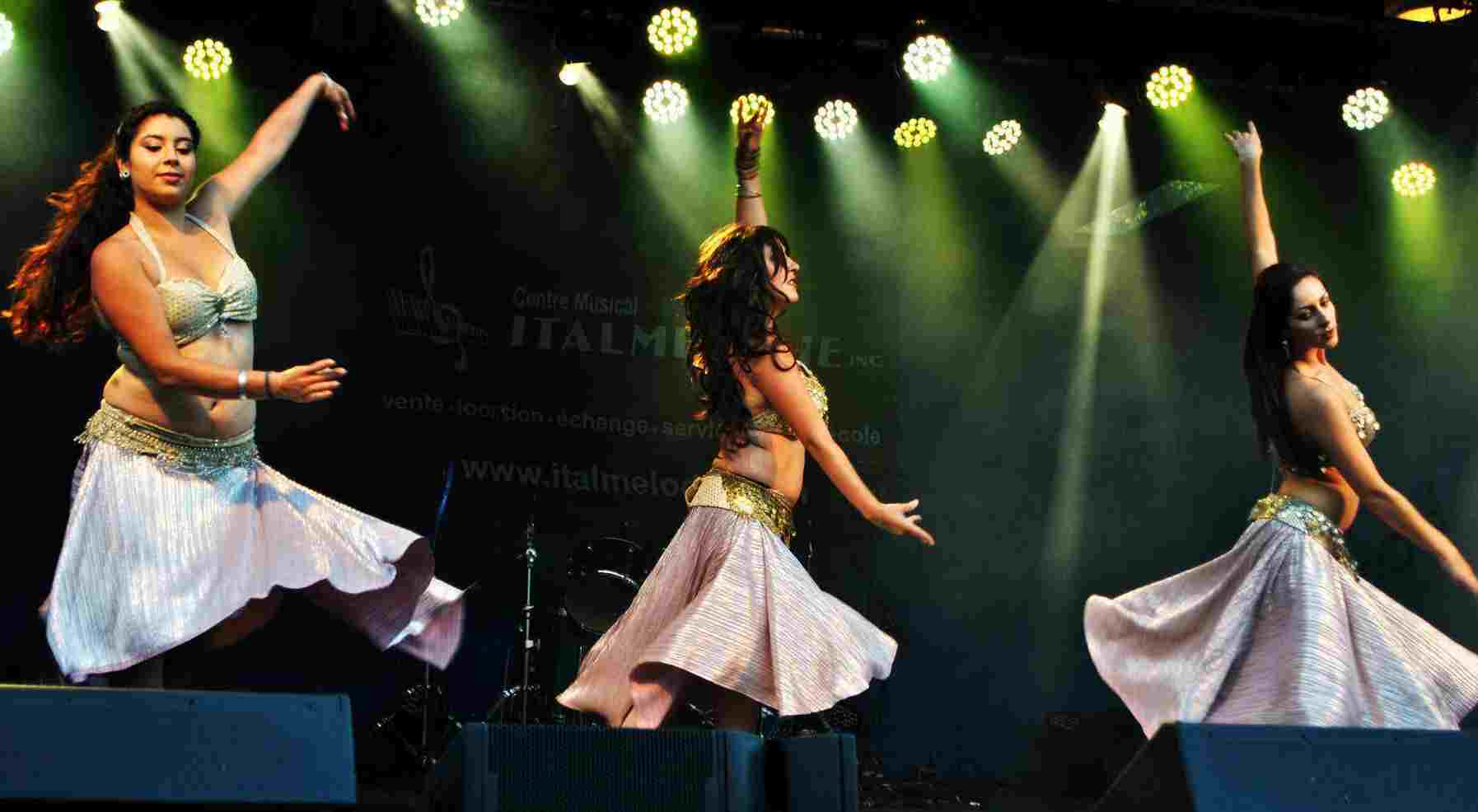
Judging
by the numbers which have been on the upswing every year, not
only locals but an increasing number of out-of-towners and Americans
are heading to Old Longueuil to soak up the vibes and satisfy
their curiosity and desire to rub shoulders with different cultures.
“I feel like I’m travelling or on a trip,”
said a first time visitor from the Côte-des-Neiges area
in Montreal.
The
programming is anything but fortuitous. Both Cadieux & Lucu
spent considerable time Down Under and discovered what was best
in Australia and brought that spirit to Quebec to the effect
that when you combine the legendary friendliness of the Aussies
with the legendary warmth and welcome of Longueuilers, you have
a formula, a chemistry that can’t miss.
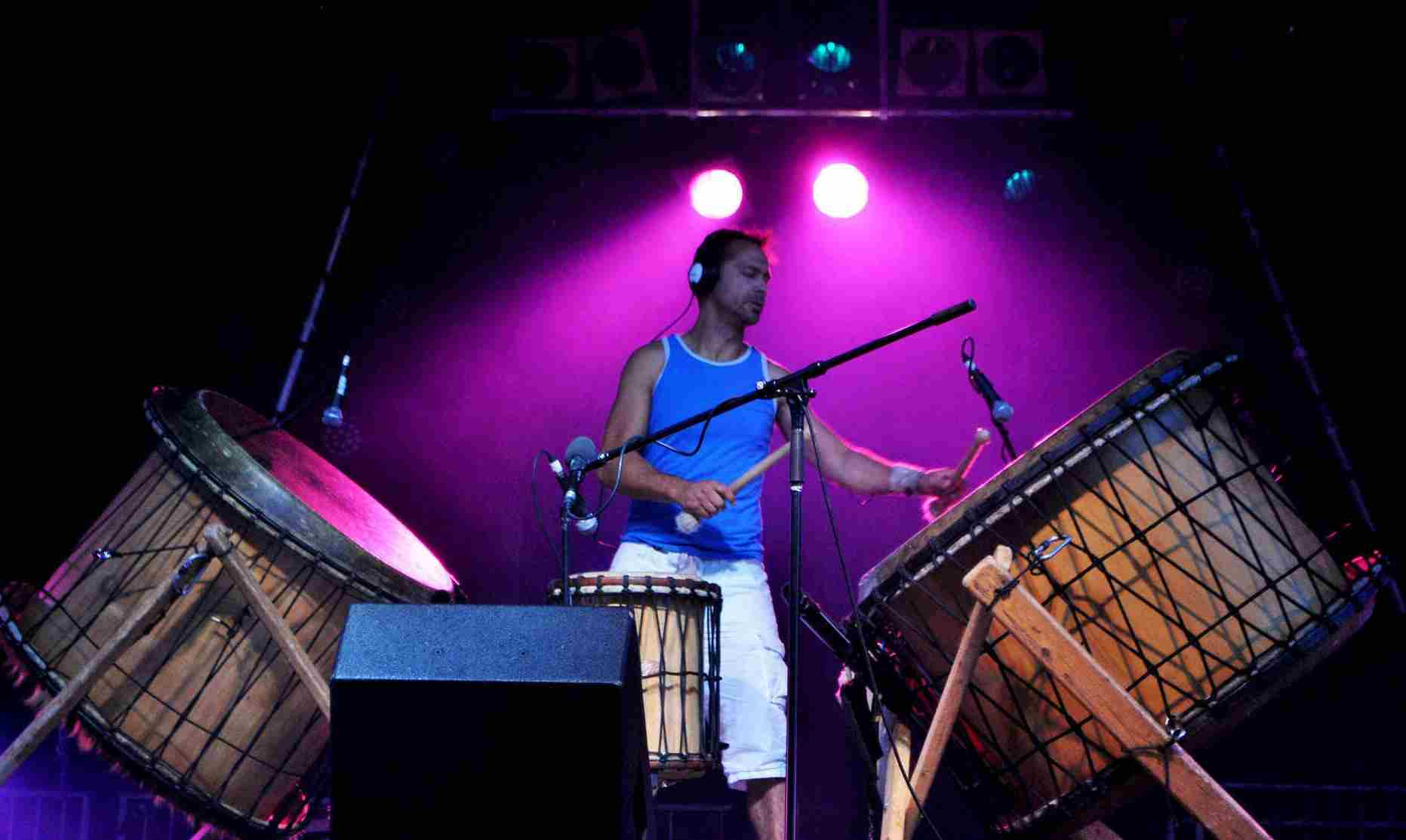
This
year’s rain-free festival featured Australia’s indigenous
Aboriginals (Latin: ab = from: original =
source) and the world’s oldest musical instrument, the
didgeridoo, made from a hollowed out tree branch with a length
up to 10 feet. The sound, which seems to emanate from the center
of creation, reflects the Aboriginal’s umbilical relationship
with nature, which in turn informs his religious beliefs and
the concept of the ‘Dreaming” that tells of a people
rising out of the ground to form the natural world. The didgeridoo
concentrates the sounds of wind, water and the animal world
and anticipates the “songlines,” which are musical
lines that cut across the earth and allow the Aboriginal to
navigate safely across long distances.
Today,
sadly, Aboriginals represent only 2% of Australia’s population.
As the only people in the world who do not place themselves
above or below the living creatures that inhabit the earth,
the lessons to be learned from this will soon be lost forever.
Speaking for aboriginal people everywhere in the world, one
of ours, a Cree, wrote in prophecy:
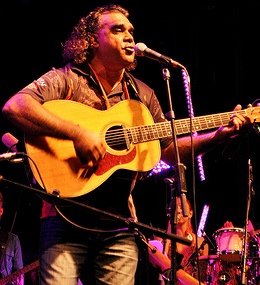 As
usual, Park St. Mark hosted a vibrant outdoor market, and music
and dance concerts that ran all day long throughout the four
day festival.
As
usual, Park St. Mark hosted a vibrant outdoor market, and music
and dance concerts that ran all day long throughout the four
day festival.
On
the main Loto-Quebec stage, multi-talented David
Hudson (singer, guitarist and painter) provided
the lyrical link between the past in present, seamlessly blending
the bottomless bellowing of the didgeridoo with folk and rock.
His stirring version “Special Treatment” spoke to
the plight of aboriginal people everywhere, as did the music
from one of Australia’s unacknowledged ambassadors of
culture and reconciliation – the amazing and engaging
Tjuppuru
(from the Djabera tribe).
But
the show everyone will remember years from now was delivered
by the Chooky
Dancers, a troupe of 5 males who burst onto the
stage as if spewed out of Australia’s desiccated Outback.
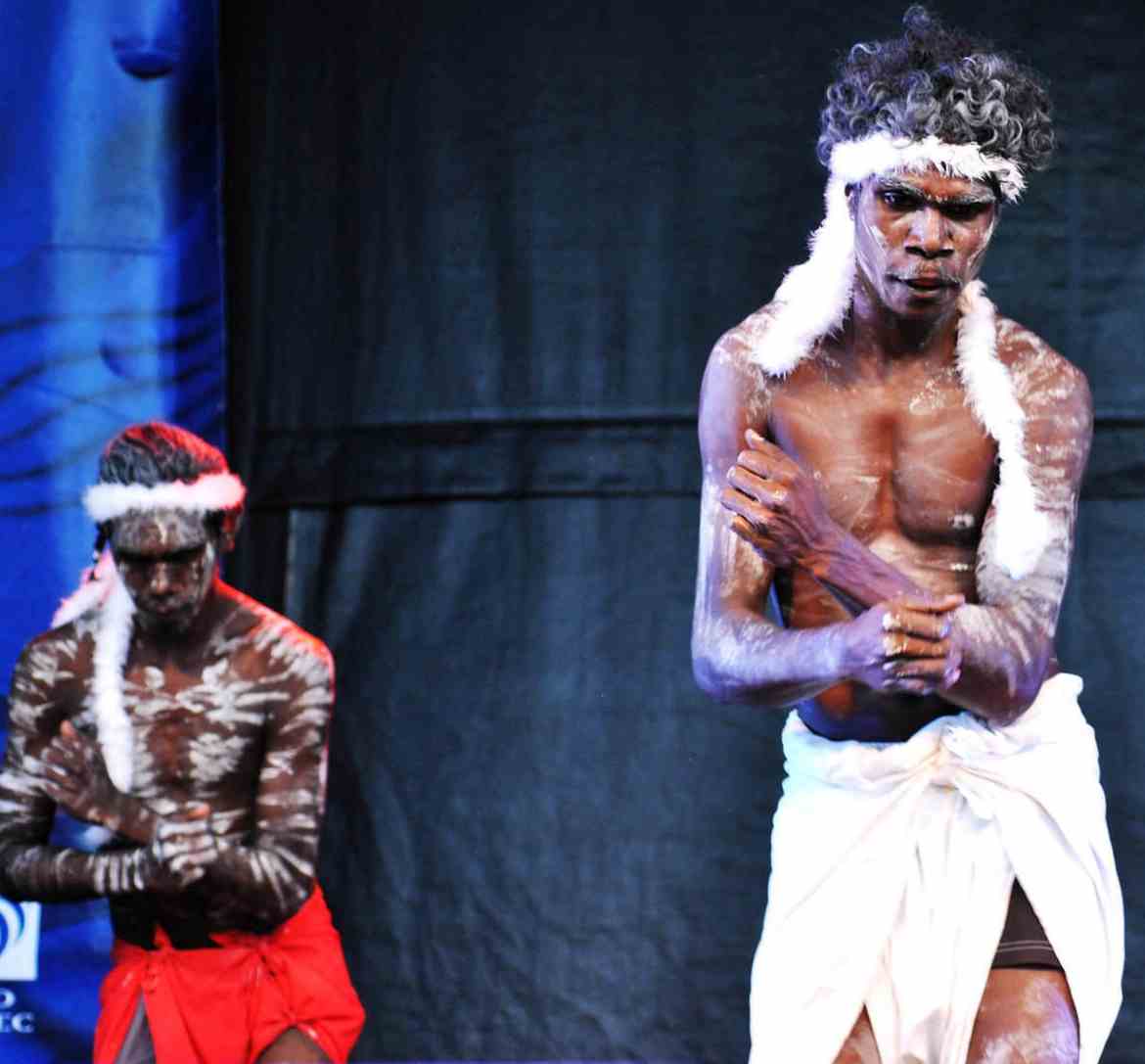 Blackened
and blistered by a seering sun, they took their cues and shaped
their voices to match the gut-rending drone of the didgeridoo,
which half way through the show miraculously morphed into and
combined with an unforgettable electro version of “Singing
in the Rain:” it was a near hallucinogenic moment which
left the crowd totally spellbound and wanting more. And more
there will be.
Blackened
and blistered by a seering sun, they took their cues and shaped
their voices to match the gut-rending drone of the didgeridoo,
which half way through the show miraculously morphed into and
combined with an unforgettable electro version of “Singing
in the Rain:” it was a near hallucinogenic moment which
left the crowd totally spellbound and wanting more. And more
there will be.
Next
year promises to be another adventure, with Japan as special
guest. If this year’s festival was top-heavy on percussion,
next year’s will explore the musical permutations generated
by the Japanese pentatonic scale (based on the black notes of
the piano). And last but not least, we’ll learn more about
Japan’s famous Kabuki theatre and its famously stylized
singing and dance.
Until
then, sayonara.
___________________________________________________________
PHOTOS
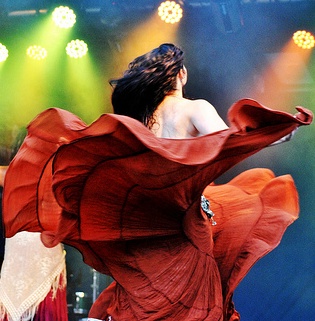
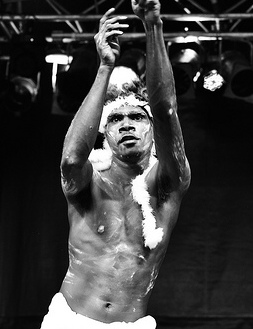
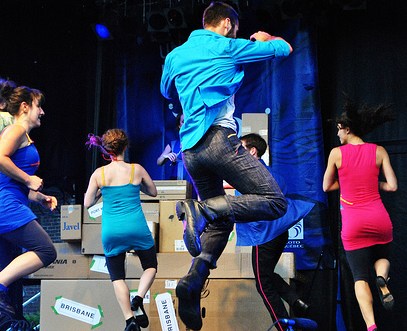
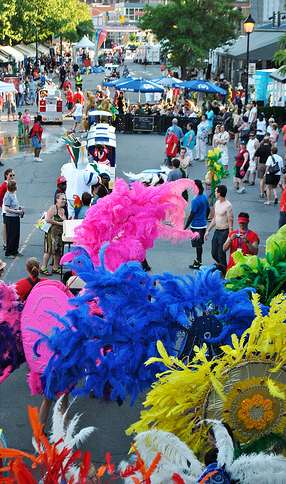
Photos © Hanna
Donato
____________________________________
If
you have already decided that Old Longueuil is where you want
to spend more time, don’t forget the FREE summer concerts
that take place every Friday and Saturday in
St. Mark Park.
2014
June 23, Fête
Nationale (St-Jean-Baptiste Day), featuring Paul
Piché (FREE outdoor concerts St. Charles Street, City
Hall).
 And
don't forget the FREE 2014 outdoor July 3rd concert featuring
the Longueuil
Symphony Orchestra and special guest Daniel
Lavoie. The concert begins at 8 pm. at Parc de
la Riviere-aux-Pins (in Boucherville).
And
don't forget the FREE 2014 outdoor July 3rd concert featuring
the Longueuil
Symphony Orchestra and special guest Daniel
Lavoie. The concert begins at 8 pm. at Parc de
la Riviere-aux-Pins (in Boucherville).